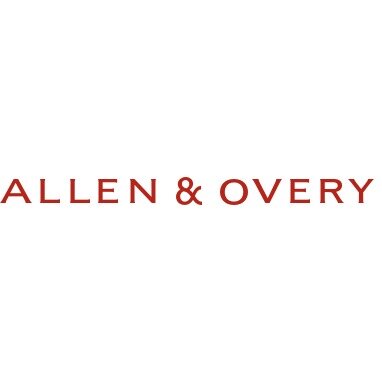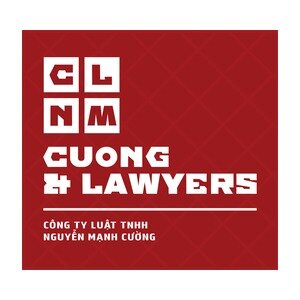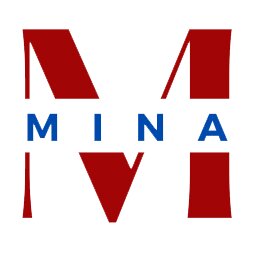Best Project Finance Lawyers in Hanoi
Share your needs with us, get contacted by law firms.
Free. Takes 2 min.
List of the best lawyers in Hanoi, Vietnam
About Project Finance Law in Hanoi, Vietnam
Project finance in Hanoi, Vietnam, refers to the method of funding large-scale infrastructure and industrial projects based on the projected cash flow of the project rather than the balance sheets of its sponsors. This type of financing is commonly used in energy, transportation, telecommunications, and social infrastructure projects. Typically, financing is secured through a combination of debt and equity, with lenders looking to the revenues generated by the project for repayment. The legal framework for project finance in Vietnam is influenced by domestic legislation and international best practices, focusing on risk allocation, security interests, and regulatory compliance.
Why You May Need a Lawyer
Navigating project finance transactions in Hanoi can be complex due to the multitude of parties, regulatory requirements, and financial interests involved. You may require legal assistance in the following situations:
- Structuring and negotiating finance agreements between sponsors, lenders, and the government
- Conducting due diligence on project feasibility, land use rights, and environmental compliance
- Securing licenses, permits, and approvals from Vietnamese authorities
- Drafting and reviewing contracts with contractors, suppliers, and service providers
- Advising on risk allocation, including force majeure and currency risks
- Resolving disputes or renegotiating terms due to changes in law or market conditions
- Establishing project companies and adhering to foreign investment rules
Local Laws Overview
The legal environment for project finance in Hanoi is shaped by several key laws and regulations:
- Investment Law: Outlines requirements for foreign and domestic investors, including project registration and investment forms
- Enterprise Law: Provides the framework for establishing and operating legal entities managing the project
- Land Law: Governs land acquisition, land use rights, and leases, which are crucial for infrastructure projects
- Law on Credit Institutions: Regulates lending activities of banks and other financial institutions
- Public-Private Partnership (PPP) Law: Offers specific regulations for PPP projects, including risk sharing and state guarantees
- Environmental Protection Law: Sets out environmental review processes and sustainability requirements for projects
- Foreign Exchange Management: Provides rules on currency movements, profit remittance, and offshore transactions
Each project must comply with a range of permits and approvals, and there are frequent updates to policy and regulatory frameworks.
Frequently Asked Questions
What is considered a project finance transaction in Hanoi?
A project finance transaction usually involves raising long-term debt and equity for large projects where repayment is secured by the cash flows from the project itself, without relying primarily on the sponsors' other assets.
Can foreign investors participate in project finance deals in Hanoi?
Yes, foreign investors are permitted to take part in project finance transactions in most sectors, subject to investment screening, sector restrictions, and compliance with relevant laws.
What types of projects commonly use project finance in Vietnam?
Energy (especially renewable energy), transport infrastructure (roads, ports, airports), telecommunications, and urban development projects are the primary sectors for project finance in Vietnam.
What is a PPP (Public-Private Partnership) project?
A PPP project is a collaboration between government and private sector entities for delivering public infrastructure or services, typically subject to special legal frameworks regarding risk sharing, returns, and government support.
What are the main risks in project finance transactions?
Key risks include construction and completion risk, operational risk, demand risk, regulatory or policy changes, environmental compliance, and force majeure events.
What approvals are needed for a project finance transaction?
Projects generally require investment registration certificates, construction permits, environmental impact approvals, land use rights or leases, and sector-specific licenses.
Are there limits on foreign lenders participating in project loans?
Foreign lenders can provide project loans, but must comply with foreign loan registration requirements and Vietnamese foreign exchange controls.
How are disputes in project finance transactions resolved in Vietnam?
Disputes may be resolved by negotiation, mediation, Vietnamese court proceedings, or international arbitration, depending on the terms of the project agreements.
What are security interests in project finance?
Security interests are collateral arrangements such as pledges over project assets, contracts, or receivables, established to secure lenders' interests in case of default.
What is the repayment source for project finance loans?
Repayment is primarily sourced from the revenue generated by the project after it enters into operation, rather than sponsor guarantees or balance sheets.
Additional Resources
For further information and assistance, consider contacting or consulting the following:
- Vietnam Ministry of Planning and Investment: Oversees investment registration, PPP frameworks, and foreign investment policy
- Hanoi Department of Planning and Investment: Handles local project licensing and investment procedures
- State Bank of Vietnam: Regulates lending, foreign exchange transactions, and financial sector oversight
- Vietnam Chamber of Commerce and Industry: Provides business networking, legal updates, and support services
- International organizations such as the World Bank and Asian Development Bank: Publish research and guidelines on infrastructure project finance
- Reputable law firms specializing in project finance and infrastructure
Next Steps
If you are considering a project finance transaction in Hanoi, Vietnam, the following actions are recommended:
- Identify legal counsel with specialized experience in project finance, infrastructure, or PPP projects in Vietnam
- Prepare a detailed proposal and gather preliminary project documents, such as feasibility studies and land information
- Consult with relevant government agencies early in your planning to understand permitting, compliance, and regulatory hurdles
- Assess potential risks and engage with lenders or financial advisors about suitable finance structures
- Request a legal consultation to review your project plan, identify any gaps in compliance, and develop a risk mitigation strategy
Legal expertise is crucial for effectively managing the complex legal and regulatory landscape of project finance in Hanoi, ensuring your project is both compliant and successful.
Lawzana helps you find the best lawyers and law firms in Hanoi through a curated and pre-screened list of qualified legal professionals. Our platform offers rankings and detailed profiles of attorneys and law firms, allowing you to compare based on practice areas, including Project Finance, experience, and client feedback.
Each profile includes a description of the firm's areas of practice, client reviews, team members and partners, year of establishment, spoken languages, office locations, contact information, social media presence, and any published articles or resources. Most firms on our platform speak English and are experienced in both local and international legal matters.
Get a quote from top-rated law firms in Hanoi, Vietnam — quickly, securely, and without unnecessary hassle.
Disclaimer:
The information provided on this page is for general informational purposes only and does not constitute legal advice. While we strive to ensure the accuracy and relevance of the content, legal information may change over time, and interpretations of the law can vary. You should always consult with a qualified legal professional for advice specific to your situation.
We disclaim all liability for actions taken or not taken based on the content of this page. If you believe any information is incorrect or outdated, please contact us, and we will review and update it where appropriate.

















